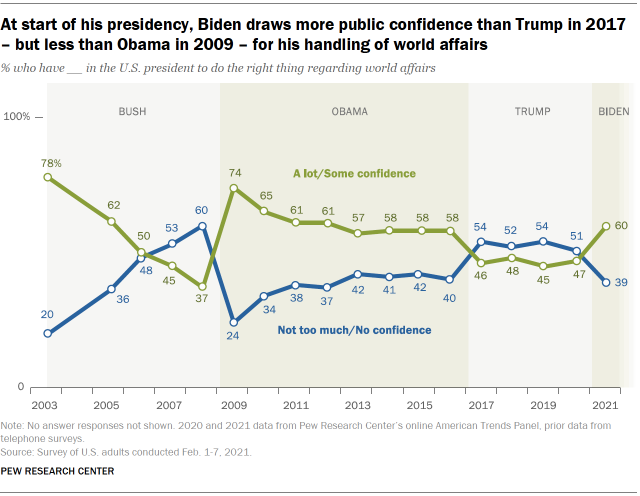Find the latest information about Should The United States Get Involved In Foreign Conflicts in this article, hopefully adding to your knowledge.
As a citizen of the United States, I’ve often pondered the nation’s involvement in foreign conflicts. It’s a complex and controversial issue with no easy answers, yet one that deeply affects our country and the world.

Should The United States Get Involved In Foreign Conflicts
The History of U.S. Interventionism
The United States has a long history of intervening in foreign affairs, dating back to the 19th century. Over the years, we’ve engaged in conflicts in numerous countries, including Latin America, Asia, and the Middle East. The motives for these interventions have varied, from protecting American interests to promoting democracy and preventing humanitarian crises.
The Arguments for Intervention
There are several arguments in favor of U.S. intervention in foreign conflicts. First, proponents argue that we have a moral obligation to help those in need. They cite the plight of civilians caught in war zones and the threat of genocide as reasons for our intervention.
Second, some argue that intervention can prevent the spread of conflict and instability. By addressing the root causes of conflict, such as poverty and injustice, we can help stabilize regions and prevent spillover effects into neighboring countries.
Third, U.S. intervention can protect American interests. For example, we may intervene to protect access to vital resources or to prevent the spread of terrorism.
The Arguments Against Intervention
Opponents of U.S. intervention raise several concerns. First, they argue that it can lead to unintended consequences. Interventions can disrupt local power dynamics, create dependencies, and even escalate conflicts.
Second, they question whether the United States has the right to intervene in the affairs of other nations. Some argue that intervention violates the principle of national sovereignty and can damage our reputation abroad.
Third, opponents argue that intervention can be costly in terms of both lives and resources. Wars can displace civilians, cause economic hardship, and undermine trust in the United States.
Evaluating the Evidence
The evidence on the effectiveness of U.S. intervention is mixed. Some studies have found that intervention can lead to positive outcomes, such as the establishment of peace and the promotion of human rights. However, other studies have found that intervention can have negative consequences, such as prolonging conflicts and exacerbating instability.
Ultimately, the decision of whether or not to intervene in a foreign conflict is a complex one. There are no easy answers, and each situation must be considered on its own merits. However, by weighing the arguments for and against intervention, and by carefully considering the potential consequences, we can make more informed decisions about when and how to use our power.
Tips and Expert Advice
Based on my research and experience, here are some tips for evaluating the issue of U.S. intervention:
- Consider the facts. Don’t rely on superficial information or biased sources. Seek out reliable, objective information about the conflict and its potential consequences.
- Be aware of your own biases. We all have biases that can influence our views on intervention. Be honest with yourself about your own assumptions and try to consider the issue from multiple perspectives.
- Weigh the costs and benefits. Carefully consider the potential benefits and drawbacks of intervention. Ask yourself: Is the potential benefit worth the risk? Are there alternative ways to achieve the desired outcome?
- Consult with experts. Seek out the opinions of experts in the field, such as foreign policy analysts, historians, and economists. They can provide valuable insights and help you understand the complexities of the issue.
Frequently Asked Questions
Q: What are the most common reasons for U.S. intervention in foreign conflicts?
A: The most common reasons for U.S. intervention include protecting American interests, promoting democracy, preventing humanitarian crises, and preventing the spread of conflict.
Q: What are the main arguments against U.S. intervention?
A: The main arguments against U.S. intervention include the potential for unintended consequences, the violation of national sovereignty, and the cost of intervention in terms of lives and resources.
Q: How can I make an informed decision about whether or not to support U.S. intervention?
A: To make an informed decision, consider the facts, be aware of your own biases, weigh the costs and benefits, and consult with experts.
Conclusion
The issue of U.S. involvement in foreign conflicts is complex and multifaceted. There are no easy answers, but by carefully considering the arguments for and against intervention, and by evaluating the potential consequences, we can make more informed decisions about when and how to use our power.
I invite you to continue this discussion and share your thoughts on the topic. Are you in favor of U.S. intervention in foreign conflicts, or do you believe that we should focus on domestic issues? Let’s engage in a respectful and thoughtful dialogue to explore this important issue further.
Should The United States Get Involved In Foreign Conflicts

Image: www.teacherspayteachers.com
Should The United States Get Involved In Foreign Conflicts has been read by you on our site. Thank you for your visit, and we hope this article is beneficial for you.